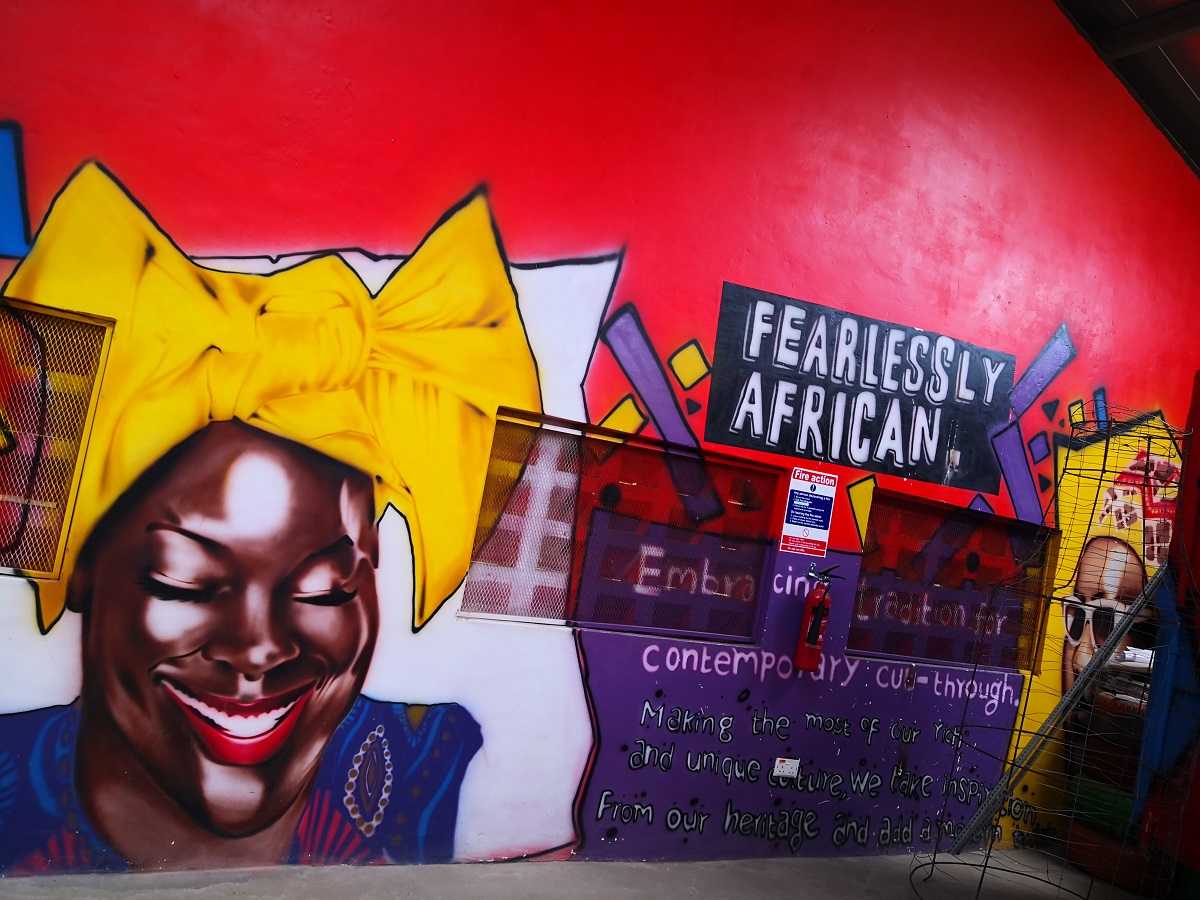When Pamela Adhiambo Otieno started making jewellery and Ankara clothes and selling them at her shop in Kibera slum, Nairobi, she had only two goals in mind; to make money by marketing her creations through her Facebook page and to help women living with HIV/Aids to earn an income by following her example.
The mother of four, who describes herself as an artisan, jeweller, entrepreneur, mentor and business teacher, is also the founder of the Kibera HIV/AIDS Support Initiative Programme (KHASIP), a 15-year-old organisation that brings HIV positive women from the slum together to grow their incomes by selling their arts, crafts and detergents.
Whenever they make a sale, members are encouraged to save a portion of their money through an informal model known as “table banking”.
Through this model, the pooled resources are lent out to members at concessionary rates, with each member acting as a guarantor for the borrowers.

While at it, members also benefit from psychosocial support so that they can live full lives despite their status.
It was business as usual for Pamela until the creative team at Kenyan Originals came across her Facebook page – Pamela Ankara – and noticed the vibrant colours of her creations.
At the time, the team was looking for authentic products that they could use as part of their marketing campaign. Kenyan Originals is a two-year-old start-up based in Baba Dogo area of Nairobi and which specialises in the manufacture of iced teas and ciders.
Its creative team, which was seeking a local supplier for its promotional attires, such as shirts and bomber jackets, visited Pamela’s shop in the Olympic area of Kibera to check out the merchandise on offer.
That was to mark the beginning of a business relationship that is now almost a year old. Today, Pamela supplies the manufacturer with branded earrings, and brightly coloured Ankara shirts which the Kenyan Originals marketing team wear whenever they have an event, say, a promotion in a bar or hotel.
“Kenyans are vibrant,” says Alexandra Chappatte, the CEO of the company. “So we wanted colours that represent this authenticity and Kenyan identity.”
This is the philosophy behind how the company’s products are packaged.
On a supermarket refrigerator, for instance, the iced tea cans and cider bottles stand out among other beverages on account of their bright signature colours which bring together influences from various parts of the country – from green fields in rural areas to blue skies and golden sunsets of national parks.

Before the partnership, which came into force in late 2020, finding a steady market for her products was always a challenge for Pamela.
However, supplying her fabric-based jewellery, T-shirts and Ankara clothing to Kenyan Originals opened a window of opportunity for her. However, challenges still persist because the global Coronavirus pandemic has hurt the hotels and bars businesses, limiting the number of promotional events that Kenyan Originals can conduct.
In the medium term, Pamela will be among the artists and artisans who will get exhibition space when the manufacturer opens its retail outlet in Westlands, Nairobi.
“We look forward to more future partnerships,” she says.
Among the young people that Pamela has worked with is Peter Petrix, a visual artist, also from Kibera, who used to design the KHASIP earrings. Peter, now 22, learned he was talented in drawing while still in primary school, but it was not until 2018 that he started drawing and painting for a living.
Peter was working at the KHASIP shop when the Kenyan Originals creative team made its maiden visit there. He grabbed the opportunity and invited him to his studio, where he showed them the work he had done. That chance visit birthed a partnership through which he was contracted to paint the barrels that the manufacturer uses in its promotional tours.
“I was contracted to paint 40 barrels,” says Peter, who uses graffiti techniques in painting the barrels. “So far I have completed 20.”

The multi-coloured barrels are painted in bright colours with product brands sprayed in white. Though each is unique in presentation, together, they create a splash that is both attractive and easy on the eye, filling space with a positive ambience ideal for a convivial atmosphere of fun and laughter.
When he first started drawing, Peter’s parents – though supportive – were too poor to afford paints, so he focused on pencil work. Many were the days he would be asked by teachers to help his fellow pupils draw sketches as part of their classwork.
Much later, after he sat his Form Four examinations, he started buying his own paints, first doing murals and later graffiti. He is the brains behind three “Jikinge” murals in Kibera and Kawangware sensitising the public on how to stay safe from contracting Coronavirus. This is in addition to other peace murals that he undertook in 2017.
His partnership with Kenyan Originals has not only given him a steady source of income but also a platform to showcase his talent. Through it, he was engaged to undertake projects with other brands such as Pulse Live Kenya, expanding his horizon and audience reach.
“Peter is an original. A Kenyan Original,” says Ms Chappatte. “He is one of the young artists helping to shape the Kenyan identity and drive innovation.”
The writer is an International Relations student at USIU-A University. dawoodnganga@gmail.com




